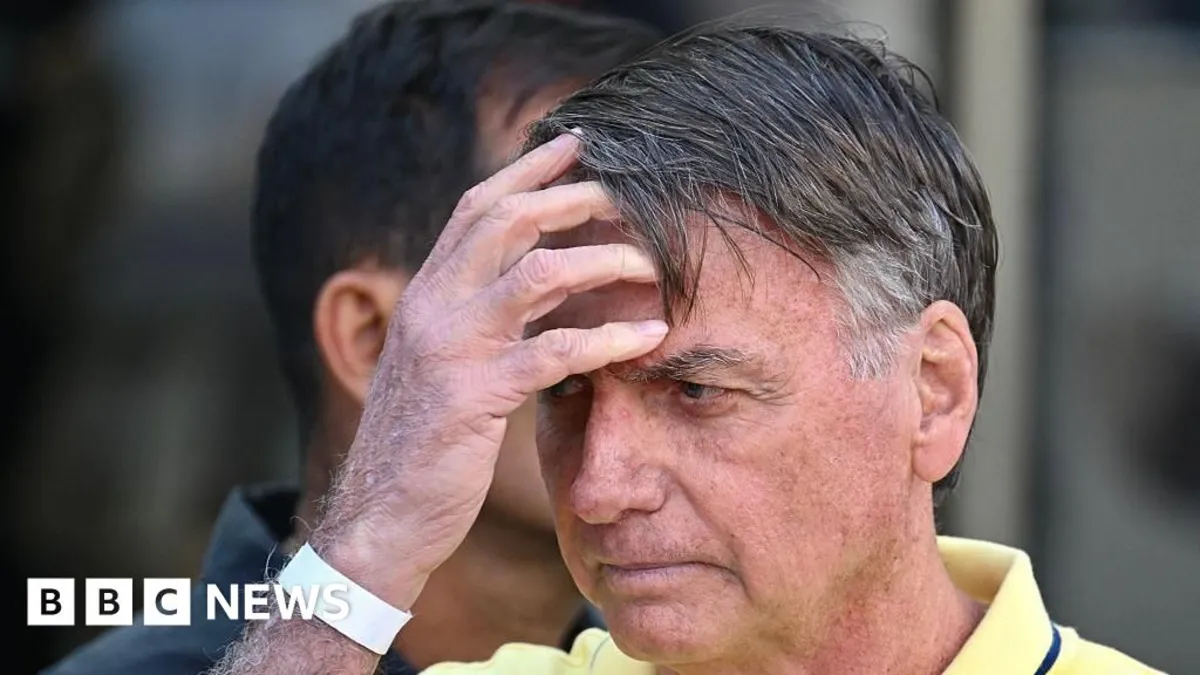
The former president of Brazil, Jair Bolsonaro, has been sentenced to an extensive prison term of 27 years and three months after being convicted of orchestrating a military coup. This significant ruling was delivered by a panel of five justices from Brazil's Supreme Court, shortly after the conviction was announced. The court found Bolsonaro guilty of leading a conspiracy aimed at maintaining his grip on power following his defeat in the 2022 presidential election against his left-wing opponent, Luiz Inácio Lula da Silva.
In a decisive ruling, four justices voted to convict Bolsonaro, while one justice favored acquittal. Currently under house arrest, Bolsonaro did not attend the trial, which he previously dismissed as a politically motivated "witch hunt." His assertions have resonated with some international figures, including former US President Donald Trump, who reacted to the verdict with surprise and drew parallels to his own legal struggles. Trump remarked, "That's very much like they tried to do with me. But they didn't get away with it at all."
The ruling has stirred controversy, attracting responses from various political leaders. US Secretary of State Marco Rubio criticized Brazil's Supreme Court for what he deemed an unjust ruling against Bolsonaro, suggesting that the United States might respond to this "witch hunt." In response, Brazil's foreign ministry quickly condemned Rubio's remarks, stating that threats against Brazilian authorities would not undermine the nation’s commitment to democracy.
At 70 years old, Bolsonaro now faces the daunting possibility of spending the remainder of his life behind bars. His legal team is expected to argue for his continued house arrest instead of a transfer to a traditional prison setting, as well as request a reduction in his sentence. However, they face an uphill battle, as appealing the verdict is not an option unless at least two justices had voted for acquittal.
Bolsonaro was convicted on five counts related to his attempts to retain power following the election loss. Prosecutors detailed that he had begun plotting to stay in power long before the election, including proposing a coup to military leaders and spreading unfounded allegations about the electoral system's integrity. Additionally, the court revealed that Bolsonaro was aware of a planned assassination targeting Lula, his vice-presidential running mate, and a Supreme Court Justice.
The Supreme Court justices found Bolsonaro not only guilty of conspiracy but also convicted seven of his associates, including prominent military figures like two former defense ministers and a former head of intelligence. Although the coup attempt did not garner sufficient military support, it led to the storming of government buildings by Bolsonaro's supporters on January 8, 2023, resulting in over 1,500 arrests.
Justice Alexandre de Moraes, who oversaw the trial, expressed grave concerns about Brazil's near descent into authoritarianism, reminding the public of the nation's history under military rule. He stated, "We are slowly forgetting that Brazil almost returned to its 20-year dictatorship because a criminal organization, comprised of a political group, doesn't know how to lose elections." Justice Cármen Lúcia, who cast the pivotal vote for conviction, likened the attempted coup to a virus capable of devastating the societal fabric if left unchecked.
This landmark ruling against Jair Bolsonaro marks a critical moment in Brazil's political landscape, reflecting ongoing tensions and the significance of upholding democratic principles in the wake of attempts to undermine them.